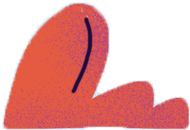On June 25, 2020, Speak Up Africa held the second conversation of the Virtual Bridges series with an insightful conversation with Dr. Canisius Kanangire, Executive Secretary, African’s Ministers’ Council on Water (AMCOW) on WASH and COVID-19. In this conversation, the Executive Secretary of AMCOW gave an update on the importance of access to sanitation in the Covid-19 context, provided a high-level overview of the post Covid-19 world for sanitation, the changes and challenges, and presented the Africa Sanitation Policy Guidelines.
Background
- 54 African States (out of 55) have reported 383,747 cases of COVID-19 and almost 10,000 deaths have been reported across the continent.
- According to the Joint Monitoring Program 2019 report by UNICEF and WHO, in Sub Saharan Africa 83% of healthcare facilities have no water services, 80% have no sanitation services and 49% have no hygiene services.
- Multiple factors leading to poor sanitation services (holistic approach, coordinated actions, sense of urgency).
- Lack of clarity in sanitation policies and institutional responsibilities.
- Inadequate legal framework and regulations.
- Inadequate financing and unclear cost recovery mechanisms.
Below are some of the key takeaways from the conversation:
- The African Ministers’ Council on Water (AMCOW)’s mission is to support Member States in achieving water, sanitation and hygiene related targets through political leadership, policy direction and advocacy. Evidence-based decisions are impactful: one of AMCOW’s main priorities is to promote knowledge driven policy and decision-making processes in the water and sanitation sector with strong monitoring and evaluation. Sanitation needs dedicated attention: the sector can only be developed through coordination between sector actors and a multi-sectoral approach.
- 45% of the African population live without basic water services, and 55% without safely managed water services. 60% of the African population live without access to sanitation services and 61% of the African population have no access to handwashing facilities on premises.
- Poor access to WASH services impact health, economies and development prospects. We know handwashing with soap is the most efficient way of stopping the spread of Covid-19; yet vulnerable populations lack access to water, sanitation and hygiene and are most exposed to the virus. We need to pay special attention to marginalized and vulnerable populations to ensure inequities are reduced in the sector. It is crucial to increase financial allocations supporting sanitation and hygiene policies and decision to ensure no one is left behind.
- Partnerships are important – to overcome this pandemic and make Africa more resilient to crises, it is important to have a stronger coordination and synergy at country, regional and continental levels.
- In the sanitation and hygiene sector, experts and professionals are focused on the fecal sludge management aspect, leaving behind important issues such as liquid/solid waste, menstrual hygiene management which has an incidence on other development aspects such as education. Young girls, especially in rural areas struggle to manage menstrual hygiene resulting in a drop in education rates. That is why the Africa Sanitation Policy Guidelines (ASPG) initiated by AMCOW includes a specific component on menstrual hygiene management to ensure women and girls’ needs are accounted for. We need to all, both men and women, take responsibility in solving challenges related to menstrual hygiene management.
- Access to safe water: many Africans still do not have access to water in their homes and live with the burden of fetching water every day. That is a challenge, especially when Covid-19 safety measures recommend regular handwashing, confining and physical distancing. These measures are difficult for vulnerable populations to implement. AMCOW has played a role in showing that Covid-19 is not only a public health matter because without access to safe water in homes, it is nearly impossible to effectively comply with safety measures. We need to bring water in homes and work with financial institutions to ensure we have access to necessary emergency funds to solve these issues.
In conclusion, access to water, sanitation and hygiene is a matter of partnership and coordination. With synergies at country, regional and continental levels, Africa can become resilient, fight Covid-19 and be better prepared for crises. A strong political will and commitment is necessary to ensure African populations live healthy and dignified lives with access to safely managed sanitation and hygiene. AMCOW will call on countries to use their shared resources and work together to ensure cooperation prevails beyond any other efforts. Peace, cooperation, well-being of populations should be the priorities and this will be possible if we, as African work in a brotherly way.
Stay tuned for our next Virtual Bridges Conversation!
Read more articles
- Speak Up Africa annonce l’initiative des Voix africaines de la science pour soutenir la R&D en Afrique
- Speak Up Africa announces new African Voices of Science initiative to champion R&D in Africa
- L’incontournable défi des systèmes de santé en Afrique
- Africa’s quest for immunity: why access to routine immunization is so crucial
- Journée mondiale de l’eau 2021 : Pour une fois, parlons d’assainissement
- World Water Day 2021: Let’s all talk about sanitation for once
- COVID-19 et l’Afrique : Que nous réserve l’avenir ?
- COVID-19 and Africa: What comes next?
- Why is the fight against Neglected Tropical Diseases vital to the fight against COVID-19?
- Renforcer la communauté scientifique africaine pour l’avenir du continent
- Strengthening the African scientific community for the future of the continent
- COVID-19 and Neglected Tropical Diseases: why we must fight them in tandem
- COVID-19 is highlighting the importance of improving sanitation on the continent
- Fighting COVID-19 is a team effort, so which side are you on?
- Our youth have the power to keep Africa safe from COVID-19
- Comment le secteur privé africain peut-il contribuer à l’élimination du paludisme en Afrique ?
- Rajah Sy on people with disabilities – “Responses to COVID-19 must be inclusive. »”
- Conversation avec l’OMS sur les MTN dans le contexte de la COVID-19
- A Conversation with WHO on Neglected Tropical Diseases in the context of COVID-19
- Conversation avec AMCOW : Ce qu’il faut retenir
- En finir avec la négligence pour accélérer le progrès : comment la lutte contre les maladies tropicales négligées peut aider à contenir la propagation de la Covid-19 ?
- Ending neglect to drive progress: How controlling neglected tropical diseases can curb COVID-19
- Pour combattre la COVID-19 nous avons besoin d’un petit peu d’argent pour le changement
- To fight COVID-19 the continental response asks A Little Change for Change!
- Special Olympics Senegal to deliver face masks to athletes in partnership with Speak Up Africa and Tongoro
- Pour les protéger du COVID-19 Special Olympics Sénégal distribue des masques à ses athlètes
- African Legends embrace #19KickupsAgainstCovid19 in support of Stay Safe Africa campaign
- Les stars africaines du ballon rond s’engagent pour la campagne « Restons Prudents Pour l’Afrique »
- 300 dispositifs de lavage des mains distribués dans des écoles sénégalaises pour lutter contre le COVID-19
- 300 handwashing stations installed in schools to keep Senegal safe from COVID-19
- La CAF fait équipe avec Speak Up Africa pour protéger un milliard d’africains contre le COVID-19
- CAF teams up with Speak Up Africa to protect one billion Africans against COVID-19
- Le COVID-19 nous démontre qu’en Afrique il est urgent de renforcer les systèmes de santé pour protéger les communautés
- COVID-19 highlights the urgent need for the African continent to protect its health systems and communities
- Restons prudents: une campagne exhortant tous les africains à jouer leur rôle contre COVID-19
- Stay Safe Africa: A campaign urging all Africans to play their part against COVID-19
- Mosquito’s physical proximity
- As Africa battles COVID-19, over 300 million Africans beg for clean water



